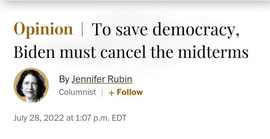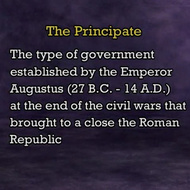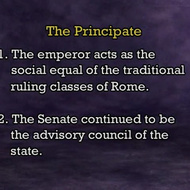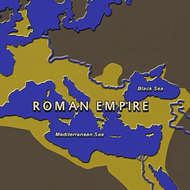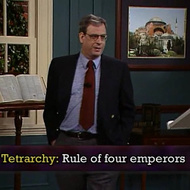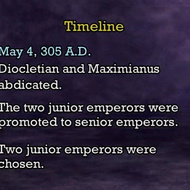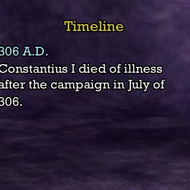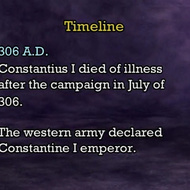Be part of the movement!
Welcome to the community for those who value free speech, evidence and civil discourse.Create your free account
6 comments
Feel free to reply to any comment by clicking the "Reply" button.I'm not sure that's real; I don't find it via search.
On July 29, The Washington Post removed the article after complaints and threats. It was all over Twitter on July 28
UnConstitutional
Since when did that matter?????????
In the globalist Orwellian double speak / newspeak terminology, democracy means technocracy. And if people vote for someone not for it, than they frame it as populism and pretend its Hitler.... even when they literally support, fund and train NAZIS in Ukraine.
In George Orwell's dystopian classic 1984, doublethink is the act of holding, simultaneously, two opposite, individually exclusive ideas or opinions and believing in both simultaneously and absolutely. Doublethink requires using logic against logic or suspending disbelief in the contradiction.
The three slogans of the party — "War Is Peace; Freedom Is Slavery; Ignorance Is Strength" — are obvious examples of doublethink. The act of doublethink also occurs in more subtle details throughout the novel.
Language matters because whoever controls the words controls the conversation, because whoever controls the conversation controls its outcome, because whoever frames the debate has already won it, because telling the truth has become harder and harder to achieve in an America drowning in Orwellian Newspeak. -- Erica Jong
"Political language... is designed to make lies sound truthful and murder respectable, and to give an appearance of solidity to pure wind.
Project Vertias - A reading from Orwell’s 1984 by James O’Keefe - Book 2, Chapter 9
“In their propaganda today’s dictators rely for the most part on repetition, suppression and rationalization — the repetition of catchwords which they wish to be accepted as true, the suppression of facts which they wish to be ignored, the arousal and rationalization of passions which may be used in the interests of the Party or the State.
As the art and science of manipulation come to be better understood, the dictators of the future will doubtless learn to combine these techniques with the non-stop distractions which, in the West, are now threatening to drown in a sea of irrelevance the rational propaganda essential to the maintenance of individual liberty and the survival of democratic institutions.”
- Brave New World Revisited (1958) by Aldous Huxley
George Orwell once said that the “English intelligentsia…can swallow totalitarianism because they have no experience of anything except liberalism…So much of left-wing thought is a kind of playing with fire by people who don’t even know that fire is hot.” Having experienced the reality of totalitarianism first-hand, Orwell knew all too well the ways in which people far removed from it employ “soothing phrases” to disguise more sinister ends. Of course, he would later coin the term “Newspeak” in his novel Nineteen Eighty-Four (1949). This was the totalitarian language created to meet the ideological requirements of English Socialism under Big Brother.
“The heirs of the French, English, and American revolutions had partly believed in their own phrases about the rights of man, freedom of speech, equality before the law, and the like, and have even allowed their conduct to be influenced by them to some extent. But by the fourth decade of the twentieth century all the main currents of political thought were authoritarian. The earthly paradise had been discredited at exactly the moment when it became realizable. Every new political theory, by whatever name it called itself, led back to hierarchy and regimentation. And in the general hardening of outlook that set in round about 1930, practices which had been long abandoned, in some cases for hundreds of years — imprisonment without trial, the use of war prisoners as slaves, public executions, torture to extract confessions, the use of hostages, and the deportation of whole populations — not only became common again, but were tolerated and even defended by people who considered themselves enlightened and progressive.”
Who controls the past controls the future. Who controls the present controls the past. Every record has been destroyed or falsified, every book has been rewritten, every picture has been repainted, every statue and street building has been renamed, every date has been altered. And that process is continuing day be day and minute by minute. History has stopped. Nothing exists except the endless present in which the party is always right."
In Fools, Frauds and Firebrands (2015), Roger Scruton reminds us that “intellectuals are naturally attracted by the idea of a planned society in the belief they will be in charge of it” (p. 12), and this is one reason why they most often start with the area over which they have the most control: language.
Another reason is because reality has a stubborn habit of not cooperating with their utopian visions: thoughts are easier to control than economies or the revealed preferences of individuals.
I have come to the conclusion they are mentally ill. In part it relates to intelligence. The ability to rationalize almost anything to conform to an adopted ideology. It's tempting to just right them off as profoundly out of touch with reality resulting from some mental defect but that is not the case. What they suffer from may be a mental defect but not of that sort. In part it is societies fault because we have encouraged the educated classes to live almost entirely within abstract reality. The productive foundations on which civilization rests are alien to them. Those foundations are unavoidable connected to physical reality.
Abstract reality unlike physical reality is unrestrained by reproductive fidelity. The physical world operates as it has evolved to operate where deleterious mutations rarely survive and are quickly eliminated. In the abstract world bad ideas go unpunished by ruthless competition for generations. Merit is as often determined by aesthetics as practicality. Many intellectuals live in an elaborate dream world not unlike the mentally ill. Like the mental illness it is a condition unrelated to intelligence.
In other cases it is simply the ability of the sociopathic (a term derived from the highly questionable credibility of the pseudo science of psychology) to rise within a bureaucracy. Stalin, Hitler, Pol Pot, Mao come to mind. A person need not be pro social to rise in a hierarchy that doesn't reward pro sociality. Social skills, including those related to extroversion, are no guarantee of pro sociality.
In this case sociability has overcome pro sociality. In other words it's monkey instincts at work not the eusociality required to maintain civilization. By monkey instincts I mean those that we are all inclined towards in any social environment because of our evolutionary past in which an easy but unstable environment favors a fast lifestyle and sociability. Humans are not instinctually eusocial. Eusocial societies are built on hierarchies of competence. By competence I mean fit for purpose. In human societies fit for purpose means a meritocracy that rewards productivity in some aspect of physical reality.
This basic concept about the nature of reality, has through cultural evolution traditionally been reflected in the social organization know as a Republic. Republics are not democracies. They have democratic elements to ensure that a hierarchy of competence is maintained. That the elites who run society are in fact connected in some way to the physical reality that the population experiences. A physical reality for example that restrains the distribution of good and services. Democracies will typically demand goods and services that don't exist. A democratic government will typically try to meet those demands by inflating currency. The rich you see do not actually consume goods and services in proportion to their wealth and in many instances are not involved in their production. The government has little to do with creating actual wealth outside of ensuring that productivity is not restrained by artificial means.
The illusion of the demos that real wealth, which is intricately tied to goods and services, resides with the rich is more of the monkey instincts that interfere with eusociality. The monkey concept of fairness is unrelated to productivity. As often as not a monkey will choose equality over some greater reward.
This was exactly the case just before the Roman Empire fell.
It was also exactly the case before the French Revolution.
And it is not exactly but very similar to just before the Russian Revolution.
History does not bode well for the next 20 years.
The Roman Republic died earlier on but the Roman Empire endured for centuries. One of the key differences after the republic died was the cosmopolitan attitude adopted by the Roman elite. They like our elites saw themselves as citizens of the world and local officials looked to profit not the health of Roman society.
The huge bureaucracy that ran the Roman Empire was like all bureaucracies more concerned with maintaining the bureaucracy than meritocracy. Little concern was given to spending exceeding revenue as long as the power structure was maintained. The Government resorted to inflation to compensate for inadequate tax revenues. Empires are very expensive as the US has discovered.
The next major change was land holdings became consolidated eliminating the small land owner that was the backbone of Roman society. We see the. same process being played out as small businesses and farms are replaced by corporations. The cause is regulation and over taxation.
The Roman Empire was not Roman in many ways just as the US is a much different culture from just a few decades ago when it was isolationist not the global Super Power.
The problem as I see it is that the New World order is completely unworkable because unlike the Roman Empire their is no final authority. No one to hold it together and it is management by committee. As anyone who has worked under management by committee will know there is no meritocracy. No consolidating or even practical objective just some vague mission statement. Stopping global warming is an excellent example. Nothing has been accomplished, there is no logical plan and the least capable people are in charge. That is assuming that the mission statement is itself rational as is often not the case when commities are made up of people with conflicting objectives.
I don't see the new world order enduring. As I watched Klaus Schwab give his speech on saving humanity at the WEF he was followed by the CEO of Pfizer who wanted to know why governments were not buying enough vaccines. An empire has to have something to hold it together. If not some empire with a nationalistic and ethnic motivation will sweep it aside. In our case that would be China.
I don't actually expect China to conquer the world. That type of Empire may actually be something of the past but I also can't see them playing nice with the misfits at the WEF. The Russian invasion of the Ukraine shows how full of hubris and weak the current cosmopolitans are. All theory and no fortitude.
@wolfhnd "The Roman Republic died earlier on but the Roman Empire endured for centuries. "
I think they also had an in-between period called the Principate period.
Roman Timeline
By N.S. Gill
Updated on October 14, 2019
Preceding the period of the Roman kings, during the Bronze Age, Greek cultures came into contact with Italic ones. By the Iron Age, there were huts in Rome; Etruscans were extending their civilization into Campania; Greek cities had sent colonists to the Italic Peninsula.
Ancient Roman history lasted for more than a millennium, during which the government changed substantially from kings to Republic to Empire. This timeline shows these major divisions over time and the defining features of each, with links to further timelines showing the key events in each period. The central period of Roman history runs from about the second century B.C. through the second century A.D., roughly, the late Republic to the Severan dynasty of emperors.
01 of 05 Roman Kings
In the legendary period, there were 7 kings of Rome, some Roman, but others Sabine or Etruscan. Not only did the cultures mingle, but they started to compete for territory and alliances. Rome expanded, extending to about 350 square miles during this period, but the Romans didn't care for their monarchs and got rid of them.
02 of 05 Early Roman Republic
The Roman Republic began after the Romans deposed their last king, in about 510 B.C., and lasted until a new form of monarchy began, the principate, under Augustus, at the very end of the 1st century B.C. This Republican period lasted about 500 years. After about 300 B.C., the dates become reasonably reliable.
The early period of the Roman Republic was all about expanding and building Rome into a world power to be reckoned with. The early period ended with the start of the Punic Wars.
03 of 05 Late Republican Period
The Late Republican Period continues Rome's expansion, but it's easy -- with hindsight -- to see it as a downward spiral. Instead of the great sense of patriotism and working together for the good of the republic that was celebrated in the legendary heroes, individuals began to gather power and use it to their advantage. While the Gracchi may have had the interests of the lower classes in mind, their reforms were divisive: It's hard to rob Paul to pay Peter without bloodshed. Marius reformed the army, but between him and his enemy Sulla, there was a bloodbath in Rome. A relative by marriage of Marius, Julius Caesar created civil war in Rome. While he was dictator, a conspiracy of his fellow consuls assassinated him, putting an end to the Late Republican Period.
04 of 05 Principate
The Principate is the first part of the Imperial Period. Augustus was first among equals or princeps. We call him Rome's first emperor. The second part of the Imperial Period is known as the Dominate. By that time, there was no pretense that the princeps were equal.
During the time of the first imperial dynasty (the Julio-Claudians), Jesus was crucified, Caligula lived licentiously, Claudius died of a poison mushroom at the hand of his wife, supposedly, and was succeeded by her son, a would-be performer, Nero, who committed assisted-suicide to avoid being murdered. The next dynasty was the Flavian, associated with destruction in Jerusalem. Under Trajan, the Roman Empire reached its greatest expanse. After him came the wall-builder Hadrian and the philosopher-king Marcus Aurelius. Problems of administering so large an empire led to the next stage.
05 of 05 The Dominate
When Diocletian came to power, the Roman Empire was already too big for one emperor to handle. Diocletian started the tetrarchy or system of 4 rulers, two subordinates (Caesars) and two full-fledged emperors (Augusti). The Roman Empire was split between an eastern and a western section. It was during the Dominate that Christianity went from a persecuted sect to the national religion. During the Dominate, barbarians attacked Rome and the Roman Empire.
The city of Rome was sacked, but by that time, the capital of the Empire was no longer in the city. Constantinople was the eastern capital, so when the last emperor of the west, Romulus Augustulus, was deposed, there was still a Roman Empire, but it was headquartered in the East. The next phase was the Byzantine Empire, which lasted until 1453 when the Turks sacked Constantinople.
@wolfhnd The Principate
The first group of Roman Emperors was the Julio-Claudian family of emperors (30 B.C.-A.D. 68). They consisted of Augustus and men related to him. As we saw, Augustus’s system was accepted partly because he disguised his enormous power. He kept all the old Republican political institutions and theoretically shared decisions with them. He used persuasion, influence, and patronage, instead of force, to get senators and other government leaders to support him. The wiser Julio-Claudians all relied on these methods, but two rulers of the family employed force openly to make others obey them. They were Caligula (37-41) and Nero (54-68).
Both men were very unstable, and they became bloodthirsty tyrants. They carried out purges of senators and other political leaders. This proved to be an extremely dangerous course of action. Members of the Roman upper class would support a ruler only as long as they felt safe from his power. They would not remain loyal indefinitely to a man who used his power against them. There was no legal way to remove an unpopular emperor, but he could die. And that’s what happened to Caligula and Nero. Both were assassinated. When Caligula was assassinated, his uncle was made emperor by the Praetorian Guards. In the case of Nero, several of his legates eventually revolted against him in 68. His death brought the Julio-Claudian family of emperors to an end.
With Nero removed, it was clear that one of his legates would have to be the new emperor. But several generals wanted the job, and they fought a civil war for nearly a year with each other over the throne. In that time, four different men were able to seize control of the government at one point or another. Thus, the year 69 A.D. is called the Year of the Four Emperors. Finally, one general did succeed in ending the civil war and making himself the unchallenged emperor again. The new ruler’s name was Vespasian (69-79).
The second group of emperors consisted of Vespasian and his relations. They were the family of the Flavians (69-96). They were generally intelligent men, and at first, they were careful not to exercise their power unwisely or to excess. This changed with the last Flavian ruler, Domitian (81-96). Gradually, over the course of his reign, he became more and more arbitrary and ruthless. As he grew more despotic, he also became more unpopular. Finally, he too was assassinated, ending the Flavian family.
Fortunately, this time civil war was averted, and the last group of rulers came to power peacefully. They are usually called the “Good” Emperors (96-180). They do not have a family name because they were not related to each other at all. None of the Good Emperors had any close relations to pass the throne to, so before each of them died, he picked a popular general to adopt as his successor. These emperors were very capable men who ruled wisely and effectively. Under them, the Empire enjoyed the greatest prosperity in its history.
I hope that two general points will be clear from this sketch. First, Romans would not tolerate a bad ruler forever. Second, the only way to get rid of a tyrant was through violence of some kind. Now I want to consider some larger historical trends that took place roughly during the period that I have just sketched.
The greatest contribution of the Roman Empire to European history was the spreading of civilization to many lands in Europe which previously had no advanced institutions or culture. Let me start with that. Prior to the Empire, civilization in Europe was largely confined to numerous small city-states that were scattered around the coast of the Mediterranean. Except in Italy and Greece, areas further inland were inhabited by various uncivilized barbarian peoples. In her wars with Carthage and the Greeks, Rome brought all the city-states under her control, and in the Late Republic, her armies began to conquer barbarian tribes in the interior of Europe as well. You may recall that when Julius Caesar was proconsul in Gaul, he took over all the tribes there as far as the Rhine River. Augustus largely completed Roman expansion by conquering the barbarians who lived south of the Danube River in Eastern Europe.
The Rhine and Danube gave the Empire a visible natural line running almost continuously all across Europe to mark the imperial border clearly in the north. That was a very useful arrangement. Once the line was reached, later emperors rarely expanded beyond it. Ironically, under the Empire, imperial expansion largely stopped. The main exception to that policy was Britain. The emperor Claudius (41-51) did invade it during his reign.
As they were conquered, the barbarians began to acquire a more advanced, civilized Roman way of life. To begin with, they started to organize and live in what Romans called civitates, city-states. In the Empire, city-states still existed and functioned as they had in earlier times. Each had its own magistrates, council, and assembly to govern its territory as it did before the Roman takeover. The only change was that the cities were no longer independent. They were supervised by the imperial governor of their province. The barbarians previously had no cities or advanced institutions, but they took over this form of organization very quickly. Gaul had come to be divided into 64 civitates by the death of Augustus.
With more advanced political organization came other improvements. The cities themselves grew rapidly, and they began to create more developed economies based partly on industry and trade. The city governments also established schools to provide their citizens with a Roman education. Within two centuries, all the subjects of the Empire abandoned their earlier customs and came to dress, act, and talk like Romans. Latin replaced older languages almost everywhere. The only exception was the Greek lands of the eastern Mediterranean. Greeks did keep their own language and culture. But they were so similar to the Romans anyway that this did not make much difference.
The spread of civilization was linked to the second major trend of the Early Empire. This trend was the assimilation of imperial subjects into the Roman political system. I need to explain what I mean.
At the start of the Empire, all Italians were Roman citizens, but there were few citizens outside of the Empire. And, of course, citizens held all the positions in imperial government. Inhabitants of the provinces, lands outside Italy, were all subjects of Rome. They served in the governments of their own city-states, but they could not hold Roman offices like senator, proconsul, or legate. During the early Empire, more and more subjects were brought into the Roman political system.
Subjects did provide military units for the Roman army. The units were called auxilia (helpers). Subjects who served in the auxilia were made Roman citizens when they were discharged from the army. Emperors also gave citizenship to entire civitates, most commonly to those that had fully adopted Roman civilization. The extension of citizenship was finally completed in 212 by an imperial decree called the Antonine Constitution. It granted citizenship to all free persons in the Empire who did not have it already.
As citizenship spread to new areas, upper-class families from those areas began to enter Roman government. The makeup of the Senate provides a handy illustration of this. By the reign of Vespasian in the 70s, 17 percent of Roman senators came from the provinces. By 180, this figure had grown to 44 percent, almost half. Most remarkably, even the office of emperor itself reflects this trend. The Julio-Claudian family belonged to the traditional Roman nobility of the Republic. Later rulers did not. The Flavians were an Italian family that received citizenship only in the Late Republic. Four of the five Good Emperors were from provinces – three were from Spain and one from Gaul. So, as time passed, all of the peoples of the Empire not only came to act like Romans, but they essentially became Romans.
The last major trend in the Early Empire was a steady growth in the power of the emperor. Of course, Augustus had extensive power. But outside the army, he exercised most of his power indirectly by influencing the Senate and other institutions held over from the Republic. In the provinces, he ruled through governors, and even they had limited authority in civil matters. The local civitates handled most of the day-to-day business of the government for the Empire.
Yet, over time, later emperors took a more direct role in ruling. Some simply did not want to work with the Senate and Republican officials like proconsuls, but that is not the whole story. Local governments in the Empire often sought financial aid or other favors from the central, imperial government in Rome. Instead of going through the governor and the Senate, they usually asked the emperor directly for what they wanted since he had the power and resources grant their requests personally.
To handle such requests, the emperors had to create more and more new officials to help them to deal with local problems and also, inevitably, to exercise greater control over local administration. At Rome, they hired secretaries and clerks to receive and send out letters and to assist in keeping records. By 100, they had begun to dispatch officials to the provinces to take over duties previously discharged by governors or city-states. The new officials differed from older Republican officials like proconsuls in that the emperor appointed them himself. They were what we would call civil servants, or maybe bureaucrats. Thus, the Empire came to have a large bureaucracy controlled by the ruler, which took over the powers of the older political institutions.
@wolfhnd Off course the problem Roman Empire faced was defense, because of its large territory and succession, and this caused eventually civil wars.
After that, there was a period of fours emperors.
The Tetrarchy was established in 293 CE by the Emperor Diocletian. It consisted of four different rulers, two head emperors (originally Diocletain and Maximian) and two junior emperors (originally Constantius and Galerius). These four Emperors spit the empire into four districts and each ruled separately. The goal of this new system was to ease the succession process, after a series of problematic successions in the 3rd century. This sectioning off of the empire significantly changed the tax system, and made each section relatively self sufficient, a development that would make fragmentation possible later in the future. While this form of government was meant to endure, a series of civil wars broke out among the tetrarchs in the 4th century, eventually ending with Constantine as the sole ruler.
After that Constantine established his new "Rome" by building Constantinople, and after the so called fall of the roman empire, people often forget that it was the western half, while the eastern half with its capital Constantinople, now called Byzantine Empire, survived for another 1000 years, while the Western Half was reunited under new religion. Roman Catholicisms, becoming Holy Roman Empire once again for a while.
Depending on how one looks at it, The Eastern Roman Empire, known in the post-Roman West as the Byzantine Empire, collapsed when Constantinople fell to the Ottoman Turks of Mehmed II in 1453.
Because Muslims did not talk about it and Western Catholics did not want to talk about it , since the other side was rival, most people know very little about Byzantine Empire, even if it was essentially the continuation of the Roman Empire.
@wolfhnd To what degree did the Byzantine Empire affect the world in comparison to its Roman predecessor?
Quora Christos Antoniadis, studied History at University of the Peloponese contributer answers:
The Byzantine Empire, being smaller in size/scope than its predecessor, did not have the same influence on the world as the ancient Roman Empire which spread Latin to much of Western Europe and influenced laws, administration, politics, architecture, ideology, etch. It did have a great deal of influence however and played a crucial role in shaping our world. It is also better to see the Byzantines as part of the broader Roman imperial history and Greek civilization, as a continuation of those two great traditions rather than as a state/civilization on its own.
Byzantium:
-
Saved much of Greek literature and is one of the reasons why we can study ancient Greek texts today. Without the Byzantine scholars, many ancient Greek texts would have been lost and our knowledge about the ancient Greek world would be much poorer. Byzantine scholars studied those texts and were deeply influenced by them. They attempted to imitate the writing style of the ancient Greek authors and were using a form of Attic Greek in their writings. Byzantine historiography was especially influenced by Greek authors such as Thucydides. Homer's epic literature was also taught as were Demosthenes’ orations. Scholars like Michael Psellus studied ancient Greek philosophers such as Plato.
-
It defended Europe from eastern invaders for centuries. The Byzantine Empire acted as a bulwark for Europe against invaders from the east, first the Sassanid Persians, then the Arab Caliphates and finally the Seljuk and later Ottoman Turks for some time. All of them were fierce opponents; the Persian empire was a bureaucratic state comparable with Byzantium, the Arabs had some of the best soldiers and generals of the Middle Ages as well as more resources and the Turks were highly skilled cavalry warriors. Yet Byzantium managed to stand firm for centuries, despite the setbacks it suffered, allowing Western Europe to survive and flourish.
-
They contributed to science. They made innovations such as: ship mills, the pointed arch bridge, the pendentive dome, hand and counterweight trebuchet, Greek fire, grenades and an early version of the flamethrower (cheirosiphōn).
-
Byzantine missionaries spread Christianity among the Slavs of the Balkans and Russia. With its proselytizing activities and efforts to bring the Slavic nations of the Balkans and Russia under its influence, Byzantium played a crucial role in Christianizing those peoples, transmitting them the Roman Orthodox civilization and the writings of the Greek church fathers and integrating them into broader Christendom and thus making them part of European civilization. Orthodoxy is still an important component of Balkan and Russian culture.
-
Byzantine art influenced the West and its traditions are maintained in Orthodox nations. Byzantine art was renowned in the Middle Ages for its splendor. Both the Caroligians and the Ottonians in the West made a conscious effort to produce art that would be fit to stand next to Byzantine art. Byzantine artistic traditions are still maintained in Orthodox countries such as Greece, Cyprus, Serbia, Bulgaria, Romania, Russia.
-
The hospitals in Byzantium were the beginnings of modern hospitals. They had institutionalized hospitals which favored the growth of medicine and pharmacy. This was especially true for the era of the Komnenoi Dynasty (eleventh-twelfth centuries), when the Hospital of Pantokrator included a pharmacy.
-
Justinian’s Code had a lasting influence on European legal systems. From 529 to 534 Justinian collected and codified Roman Law in his Codex Justinianus (Code of Justinian). This formed the basis of Byzantine law for centuries and was later transmitted to the West, where it had a lasting influence on European legal systems.
-
Institutions of the Byzantine Empire influenced the administration of the Ottoman Empire. The Ottoman Sultans also claimed to be Emperors of the Romans (Kayser-i Rum).
"In this case sociability has overcome pro sociality."
Remind me of what Theodore J. Kaczynski, has said in "Industrial Society and Its Future: The Unabomber Manifesto"
“Modern leftist philosophers tend to dismiss reason, science, objective reality and to insist that everything is culturally relative. More importantly, the leftist hates science and rationality because they classify certain beliefs as true (i.e., successful, superior) and other beliefs as false (i.e., failed, inferior). The leftist’s feelings of inferiority run so deep that he cannot tolerate any classification of some things as successful or superior and other things as failed or inferior. Leftists are antagonistic to genetic explanations of human abilities or behavior because such explanations tend to make some persons appear superior or inferior to others. Leftists prefer to give society the credit or blame for an individual’s ability or lack of it. Thus if a person is “inferior” it is not his fault, but society’s, because he has not been brought up properly.
Leftists may claim that their activism is motivated by compassion or by moral principles, but compassion and moral principle cannot be the main motives for leftist activism. Hostility is too prominent a component of leftist behavior; so is the drive for power. Moreover, much leftist behavior is not rationally calculated to be of benefit to the people whom the leftists claim to be trying to help. For example, if one believes that affirmative action is good for black people, does it make sense to demand affirmative action in hostile or dogmatic terms? Obviously it would be more productive to take a diplomatic and conciliatory approach that would make at least verbal and symbolic concessions to white people who think that affirmative action discriminates against them.
But leftist activists do not take such an approach because it would not satisfy their emotional needs. Helping black people is not their real goal. Instead, race problems serve as an excuse for them to express their own hostility and frustrated need for power. In doing so they actually harm black people, because the activists’ hostile attitude toward the white majority tends to intensify race hatred.”
Psychologists use the term "socialization” to designate the process by which children are trained to think and act as society demands. A person is said to be well socialized if he believes in and obeys the moral code of his society and fits in well as a functioning part of that society.
It may seem senseless to say that many leftists are over-socialized, since the leftist is perceived as a rebel. Nevertheless, the position can be defended.
The moral code of our society is so demanding that no one can think, feel and act in a completely moral way. For example, we are not supposed to hate anyone, yet almost everyone hates somebody at some time or other, whether he admits it to himself or not. Some people are so highly socialized that the attempt to think, feel and act morally imposes a severe burden on them. In order to avoid feelings of guilt, they continually have to deceive themselves about their own motives and find moral explanations for feelings and actions that in reality have a nonmoral origin.
We use the term "oversocialized” to describe such people. Oversocialization can lead to low self-esteem, a sense of powerlessness, defeatism, guilt, etc. One of the most important means by which our society socializes children is by making them feel ashamed of behavior or speech that is contrary to society’s expectations.
Leftists of the oversocialized type tend to be intellectuals or members of the upper-middle class. Notice that university intellectuals constitute the most highly socialized segment of our society and also the most leftwing segment. The leftist of the oversocialized type tries to get off his psychological leash and assert his autonomy by rebelling. But usually he is not strong enough to rebel against the most basic values of society.
Generally speaking, the goals of today’s leftists are NOT in conflict with the accepted morality. On the contrary, the left takes an accepted moral principle, adopts it as its own, and then accuses mainstream society of violating that principle.”
@wolfhnd "He may have been crazy but he was smart."
True. Some suggest he was the sane one that went mad in the insane environment of the academia and what he saw was coming. So there is that theory.
"You and I are driven primarily by curiosity I believe Krunoslav. Something that seems amazingly lacking in most people. "
Very true.
“The natural inclination of a child is to take pleasure in the use of the mind no less than of the body. The child's primary business is learning. It is also the primary entertainment. To retain that orientation into adulthood, so that consciousness is not a burden but a joy, is the mark of the successfully developed human being.” ― Nathaniel Branden
"Most people spend most of their lives in a subjective world of their own neurotic creation, then wonder why they feel anxiety and helplessness in the real world." - Nathaniel Branden
“For the rational, psychologically healthy man, the desire for pleasure is the desire to celebrate his control over reality. For the neurotic, the desire for pleasure is the desire to escape from reality.” - Nathaniel Branden, psychotherapist
“The neurotic is nailed to the cross of his own fiction.”
―Alfred Adler
The mid terms are one of the few chances we will get to change the course we are are on, and we really need to change course!!!!!
The one worlders are going to do everything in their power to make sure we stay on course. Why wouldn't they, things have been going really well for them for decades. That George Soros isn't in prison over his currency manipulations is an excellent example. That people like Mitt Romney are not social pariahs due to stock manipulation another.
Recent Visitors 18
Photos 11,806 More
Posted by Weltansicht....and oppossums eat all the ticks....
Posted by JohnHoukAmerican Intel Spies & Withholds Info from Trump! WAKE UP AMERICANS! SUMMARY: Americans who still support The Democratic Party (which should be re-labeled Dem-Marxist Party) are supporting spying ...
Posted by FocusOn1Clown world: when people cant figure their shit out, they run to a woman who says she doesnt know what a woman is and wears a black robe for guidance.
Posted by Sensrhim4hizvewzHow quickly it all turned.
Posted by Sensrhim4hizvewzMuh Diversity...
Posted by JohnHoukAn Intro to THE EXPOSÉ Look at Occult Influence on Elitists SUMMARY: THE EXPOSÉ has delved into a Substack post by Elizabeth Nickson … I am unsure if THE EXPOSÉ had this in mind, but my take ...
Posted by FocusOn1An0maly on facebook.... Communists violating the first amendment in america
Posted by JohnHoukAntisemitism Idiocy Summary: I have not seen the coverage of college campus protests supporting the Hamas butchers as Israel has entered Gaza to punish pseudo-Palestinians for the 10/7/23 genocide ...
Posted by JohnHoukAI Dystopia Moving from Sci-Fi to a WEF NWO: A Look at Stop World Control Documentary, ‘THE END OF HUMANITY - As Planned By The Global Leaders’ SUMMARY: An intro by Patricia Harrity followed ...
Posted by JohnHoukGlobalist Tyranny Videos Batch – Part TWO SUMMARY: The video list I’m sharing leans more toward Globalist Tyranny (which includes the American traitors – the Dem-Marxists) in this batch.
Posted by JohnHoukGlobalist Tyranny Videos Batch – Part ONE SUMMARY: I’ve spent the last few days looking at saved videos largely from Telegram Social Media.
Posted by JohnHoukWATCH OUT FOR AN AI TYRANNY & NSA Spying SUMMARY: I’ve witnessed too many dark-side leaps and bounds to give credence to AI-Tyranny naysayers.
Posted by Sensrhim4hizvewzCohencidence or PLANNED???
Posted by Sensrhim4hizvewz Hopefully, everyone catches it and everyone gets better
Posted by JohnHoukFBI Investigates Baltimore Bridge Collapse! Suggests NOT an Accident! SUMMARY: On 3/27/24 I shared a Lara Logan Tweet on her opinion of what caused the Francis Scott Key Bridge near Baltimore ship ...
Posted by JohnHoukPolitical Tyranny – Part Two Videos Showing the Political Tyranny of Factionalism & Globalist Entanglements SUMMARY: IN Part 1 I used President Washington’s 1796 Farewell Address as a ...
